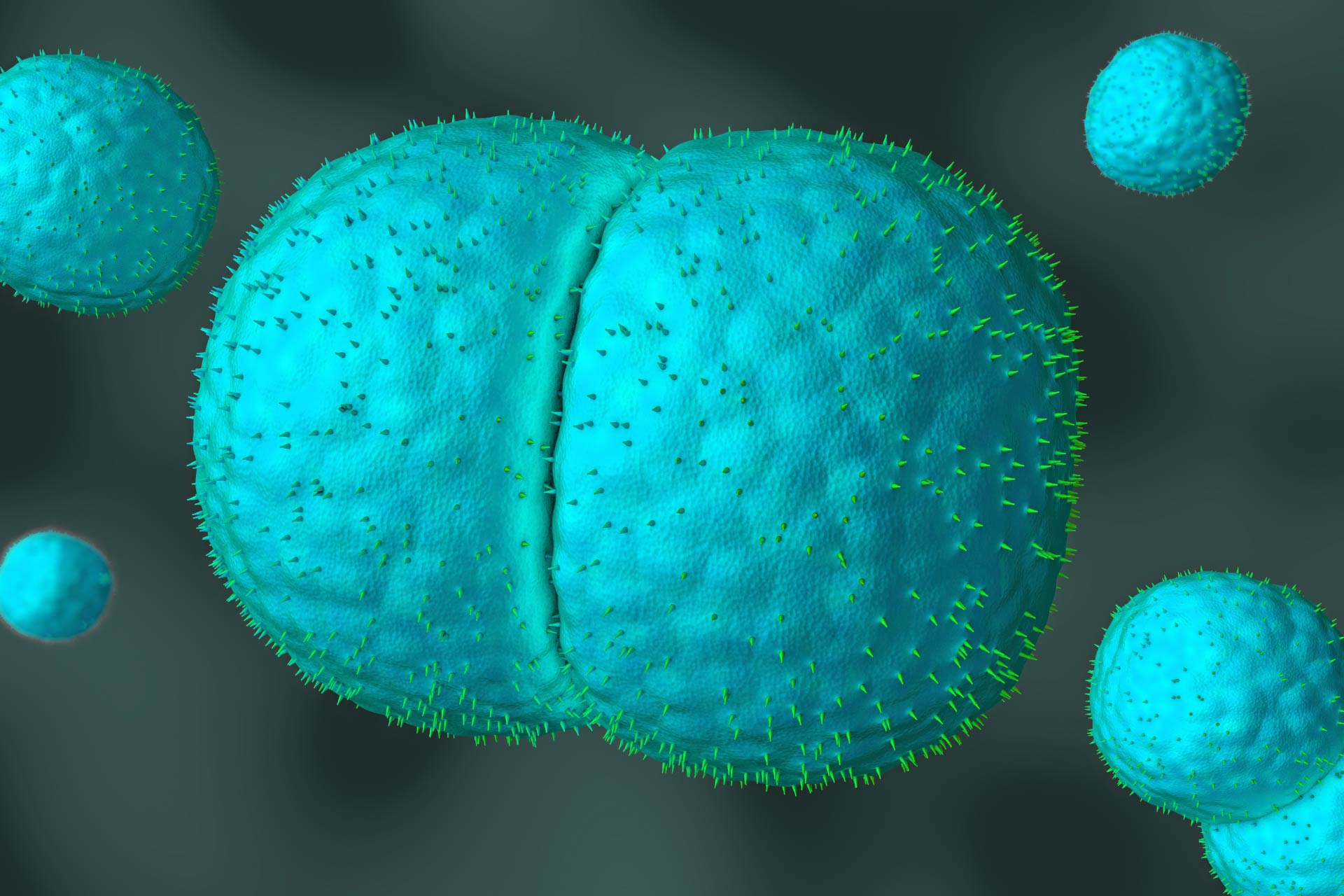• ‘Leaky’ gut
• Infection risk
What is already known on this topic
Compared to children and adults, newborns are more likely to develop bacterial meningitis, an inflammation of the brain and spinal cord membranes typically caused by Group B streptococcus. Neonatal meningitis often results from an intestinal infection with streptococcus, which can travel across the intestinal barrier and invade the brain.What this research adds
Working in mice, researchers have shown that an immature gut microbiota can make newborns susceptible to bacterial meningitis. In the absence of a mature microbiota, streptococcus bacteria can extensively colonize the gut. Since the barriers formed by the gut and the interface between the blood and the cerebrospinal fluid are not entirely mature in newborns, the bacteria can more easily enter the brain.Conclusion
The findings could inspire interventions aimed at maturing the infant microbiota, which can help to prevent neonatal meningitis.
Bacterial meningitis, a life-threatening inflammation of the brain and spinal cord membranes, is much more common in newborns than in children or adults. New research could explain why: an immature gut microbiota appears to make newborn mice susceptible to bacterial meningitis.
The findings, published in Cell Reports, could inspire interventions aimed at maturing the infant microbiota, which can help to prevent neonatal meningitis.
Bacterial meningitis often results from an intestinal infection with Group B streptococcus, which can travel across the intestinal barrier and invade the brain. Scientists have known that the gut microbiota offers protection from pathogens and contributes to the development of the immune system, but it remained unclear whether an immature microbiota could favor the development of bacterial meningitis.
To assess the role of the newborn microbiota in neonatal meningitis, Marc Lecuit at Institute Pasteur and his colleagues compared germ-free and control mice of different ages that were infected with Group B streptococcus.
‘Leaky’ gut
Germ-free mice were more susceptible to infection with Group B streptococcus than control mice, and newborn mice were more susceptible than adult mice. This suggests that neonatal susceptibility to streptococcus infection depends both on age and the gut microbiota maturity.
By analyzing streptococcus infection step by step, the researchers found that a mature microbiota can strengthen the function of the intestinal barrier, thus preventing the bacteria from invading the gut.
Further experiments showed that the intestinal barrier of newborn mice is more ‘leaky’ than that of adult mice. That’s because a specific signaling pathway called the Wnt pathway, which is involved in tissue growth and differentiation, is more active in newborns, the researcher found. This results in a reduced effectiveness of the barrier function of the gut and the choroid plexus — a secretory tissue in the brain that produces most of the cerebrospinal fluid irrigating the central nervous system.
Infection risk
The gut microbiota is known to be involved in the development and maturation of the immune system. So, the researchers set out to test the ability of newborn mice to control systemic infection. They found that the mature microbiota can control the presence of streptococcus bacteria in the bloodstream, and in the absence of a mature microbiota, mice show a higher bacterial load. The transfer of streptococcus bacteria from the blood to the central nervous system is also more frequent in newborn rodents with an immature microbiota.
The findings show that an immature microbiota can ease colonization of the gut by streptococcus bacteria and favor its translocation across the gut and blood vessel barrier, this allowing the bacteria to invade the bloodstream. This could explain in part why newborns are at increased risk of developing bacterial meningitis, the researchers say.
“In this study, we show how two factors associated with infancy — the immaturity of the gut microbiota and the growth of gut and choroidal epithelial tissues — play a role in the susceptibility of newborn infants to meningitis caused by [Group B streptococcus], at all stages of infection from gut colonization to dissemination in the brain,” Lecuit says.









